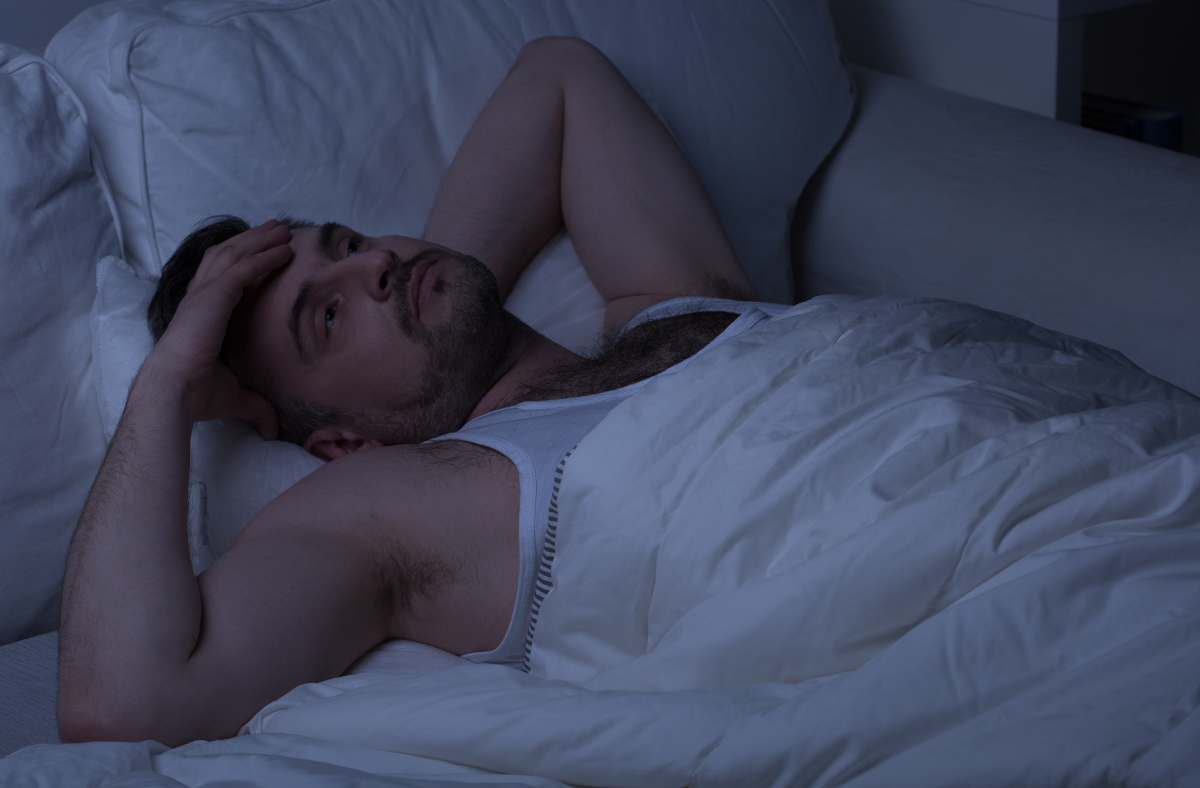Living with asthma can already feel like walking a tightrope — managing flare-ups, monitoring triggers, and keeping your airways calm. But when sleep apnea enters the picture, things can become even more complex. In this post, we’ll unpack asthma and sleep apnea — how they may influence each other, what to watch out for, and steps you can take to protect your nighttime breathing and overall health.
What Is the Link Between Asthma and Sleep Apnea?
When considering asthma and sleep apnea, one might assume they’re separate issues (lower airway disease vs. upper airway problem). But the evidence suggests a more intertwined relationship.
Shared Risk Factors & Overlapping Mechanisms
Asthma and obstructive sleep apnea (OSA) share several common contributing factors:
- Inflammation: In asthma, inflammation occurs in the bronchial tubes, and many researchers believe OSA can provoke or worsen systemic and airway inflammation, as highlighted in this recent study.
- Obesity: Excess weight can increase the risk of more severe asthma and contribute to upper airway collapse during sleep, which can lead to sleep apnea. This relationship is discussed in more detail in a Medical News Today article on asthma and sleep apnea.
- Upper airway changes: Nasal congestion, rhinitis, or swelling common in asthma sufferers can reduce upper airway patency during sleep, promoting apnea episodes.
- Medication effects: Long-term use of corticosteroids (especially oral steroids) for asthma may weaken upper airway muscles or change tissue characteristics, increasing tendency for airway collapse during sleep.
Because of these shared factors, it’s not surprising that studies have found asthma patients tend to have higher rates of OSA than people without asthma. In fact, one large observational study found that having asthma increased the risk of developing OSA over time (relative risk ~1.39) even after adjusting for body mass index (BMI) and other factors.
But correlation doesn’t necessarily mean one directly causes the other. Instead, research tends to point to a bidirectional relationship, where each condition can worsen the severity or control of the other.
Can Asthma Cause Sleep Apnea—or Vice Versa?
Can Asthma Cause Sleep Apnea?
This is a common question: can asthma cause sleep apnea? The short answer: not in the strictest sense (i.e. asthma doesn’t directly “create” the anatomical obstruction), but asthma may make your airway more vulnerable to collapse during sleep.
Asthma-induced factors like airway inflammation, changes in tissue tone, increased negative inspiratory pressures during breathing, and the use of steroids can all increase upper airway collapsibility—thus increasing the risk of apneas during sleep. So while asthma doesn’t directly cause OSA, it can create an environment that makes OSA more likely.
Does Sleep Apnea Worsen Asthma?
Yes — does asthma cause sleep apnea is only part of the story. Having sleep apnea can lead to repeated drops in oxygen, fragmented sleep, increased inflammation, and changes in autonomic tone. All of these stressors can worsen asthma control, trigger nocturnal asthma symptoms, or raise the baseline inflammation in the lungs.
In fact, studies have shown that treating OSA may lead to better asthma outcomes — fewer nighttime symptoms, improved lung function, and fewer exacerbations. For a deeper understanding, you can read more about the Interrelationship Between Obstructive Sleep Apnea Syndrome and Severe Asthma.
Hence, the relationship is messy and interconnected: asthma may predispose to OSA risk, and OSA may amplify asthma’s severity or destabilize its control.
Recognizing Sleep Apnea in People with Asthma
Because symptoms of sleep apnea and asthma may overlap (both can cause nighttime awakenings, shortness of breath, or disturbed sleep), it’s helpful to know when to suspect OSA in someone with asthma.
Signs & Symptoms to Watch For
Some clues that sleep apnea may be complicating asthma include:
- Loud snoring, followed by breathing pauses
- Year-round nasal congestion or rhinitis
- Waking gasping or choking
- Excessive daytime fatigue or sleepiness
- Morning headaches
- Worsening asthma control despite treatment
- High usage of rescue inhalers at night
If you notice any of these, especially when asthma control is poor or worsening, it might be time to consider the overlap of asthma and sleep apnea symptoms and investigate further.
How Treatment of One Can Help the Other
CPAP and Asthma
One vital question many patients wonder: does CPAP for asthma help? (or, more precisely, cpap and asthma). The core purpose of CPAP is to treat OSA by keeping the airway open during sleep. It is not a direct therapy for asthma, but for people with both conditions, CPAP use can yield benefits:
- Improved overnight oxygenation
- Reduced airway inflammation (from fewer apnea episodes)
- Decreased gastroesophageal reflux (which can trigger asthma)
- Better overall sleep quality and respiratory stability
Some studies show that patients with asthma and OSA who use CPAP experience fewer asthma exacerbations and improved control. That said, CPAP must be medically indicated and prescribed — which explains why a CPAP prescription is essential before you begin therapy. (You can read more about why a CPAP prescription is needed here.)
When state-of-the-art care is involved, CPAP may reduce the “cross talk” between OSA-driven inflammation and asthma-driven inflammation, helping stabilize both conditions.
Controlling Asthma Well
Because asthma-related airway inflammation and triggers can worsen sleep-disordered breathing, optimizing your asthma control is a key step:
- Use inhaled medications consistently
- Minimize nocturnal triggers (allergies, dust, pets)
- Monitor and reduce airway inflammation
- Work with your physician to adjust therapy during flare-ups
In some cases, modifying asthma therapy can reduce upper airway stress and reduce OSA burden, though evidence is still emerging.
Together, treating both conditions (asthma and OSA) in an integrated way often gives the best results.
Conclusion
Asthma and sleep apnea often coexist, and the two can amplify each other’s effects in subtle yet serious ways. While asthma doesn’t strictly “cause” OSA, it can make your upper airway more fragile during sleep. Conversely, untreated OSA can worsen asthma control through repeated oxygen deprivation, sleep fragmentation, and added inflammation.
If you’re managing asthma and notice worsening symptoms at night, loud snoring, or unexplained fatigue, it may be time to explore whether sleep apnea is also part of the picture. Starting with an at home sleep test is a practical, convenient way to get real insight into your breathing while you rest—an essential step toward integrated care and better nights ahead.
Frequently Asked Questions
Can asthma cause sleep apnea in children?
Yes, though the mechanisms may differ in children. OSA and asthma both occur in pediatric populations, and asthma may increase risk of airway collapsibility in children too, especially when obesity or adenotonsillar enlargement is involved.
How does CPAP help when you have both conditions?
CPAP primarily treats OSA by stabilizing the airway during sleep. In individuals with both asthma and OSA, CPAP can reduce nocturnal hypoxia and inflammation, thereby easing stress on the lungs and potentially improving asthma symptoms.
Is CPAP a cure for asthma?
No — CPAP is not a direct asthma treatment. It helps by addressing sleep apnea, which can reduce one of the burdens on your respiratory system, but you still need asthma-specific medications and management.
If I have asthma but no obvious sleep symptoms, should I still get tested for sleep apnea?
If your asthma seems hard to control, or you have risk factors (obesity, snoring, daytime sleepiness, nasal congestion), it can be helpful to get screened. A sleep study or at home sleep test may reveal an underlying sleep breathing disorder that’s interfering with your lung health.

Dr. Kunal Agarwal is a highly accomplished board-certified physician specializing in Family Medicine, Sleep Medicine, and Obesity Medicine. He completed his residency at Michigan State University and a fellowship at Henry Ford Health System, and has over a decade of experience delivering exceptional patient outcomes. Dr. Argarwal is passionate about patient education and advocacy, sleep disorders, and more. His expertise in treating sleep apnea is extremely valuable to improve his patients’ lives.
Awards, Honors, & Recognition
Top Doctor
SRQ Magazine and Sarasota Magazine, 2023-2024
Fellow of American Academy of Sleep Medicine (FAASM)
American Academy of Sleep Medicine, 2021
Named “Top Doctor” for 2017, 2018 (on cover), 2019,and 2020 by Delaware Today Magazine
2017-2020




